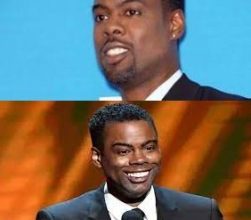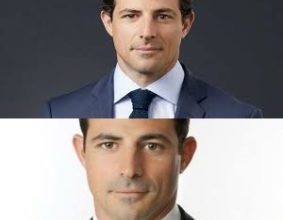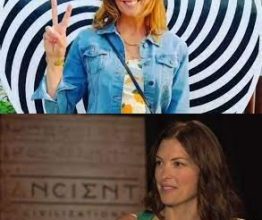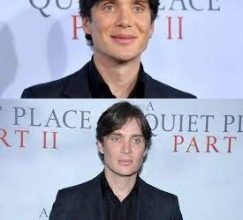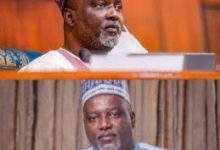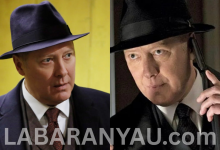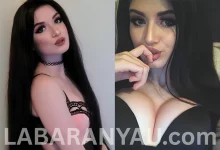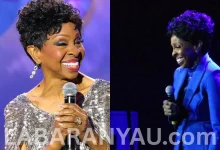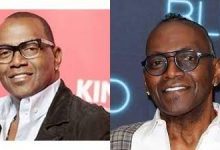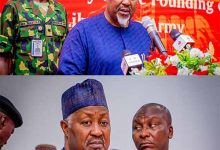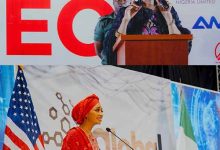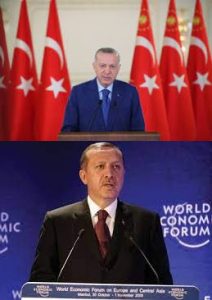
Tayyip Erdoğan Biography
Turkish politician and the 12th and current president of Turkey since 2014 (born February 26, 1954). From 2003 to 2014, he was Turkey’s prime minister. From 1994 to 1998, he was Istanbul’s mayor. In 2001, he also helped create the Justice and Development Party (AKP).
At the age of 13, Erdoan and his family relocated to Istanbul from his birthplace of Güneysu, Rize. Before beginning his career as a consultant and senior manager in the private sector, he completed his Business Administration degree at the Aksaray Academy of Economic and Commercial Sciences. During this time, Erdoan started participating in the parties of seasoned Islamist politician Necmettin Erbakan, serving first as the Beyolu district head of his party in 1984 and then as its chair in Istanbul in 1985. Erdoan was chosen to serve as mayor of Istanbul after the 1994 municipal elections, modernizing the city’s economy and infrastructure in the process.
After reading a poetry by Ziya Gökalp that compared mosques to barracks and the faithful to an army, he was found guilty of inciting religious hate in 1998. After being released from prison in 1999, Erdoan renounced openly Islamist ideology and split from Erbakan to found the AKP, a party modeled after the European Christian Democratic parties.
In 2002, Erdoan went on to lead to a resounding victory. After winning a by-election in Siirt in 2003, Erdoan was elected prime minister when his political ban was revoked. Under Erdoan’s direction, the AKP won two additional elections in 2007 and 2011. Turkey was able to begin EU membership negotiations thanks to reforms implemented in the early years of Erdoan’s premiership. In addition, Turkey’s economy recovered from the 2001 financial crisis thanks to investments in highways, airports, and a high-speed rail network. In 2007 and 2010, he also prevailed in two constitutional referendums.
As the AKP was accused of conducting purges against military commanders through the Balyoz and Ergenekon cases, Erdoan diminished the role of the military on politics, withstood the E-memorandum, and remained divisive. To end the Kurdish-Turkish war, his government started peace talks with the PKK in late 2012; these talks were successful and the conflict was resolved three years later.
Erdoan was elected as the country’s first popularly elected president in 2014. Erdogan’s administration has been characterized by a turn toward a more authoritarian style of governance and has been accused of violating human rights, stifling opposition, and suppressing free expression. He has received criticism for how he handled a number of situations, including the 2013 Gezi Park protests, the 2016 failed coup attempt, the currency crisis that began in 2018, and the ongoing conflict in Syria, which is thought to have played a role in the unfavorable outcomes of the 2019 local elections, in which his party for the first time in 15 years lost control of major cities like Ankara and Istanbul to opposition parties.
Erdoan backed the referendum in 2017 that converted Turkey from a parliamentary to a presidential system and established a two-term limit for the prime minister. After Erdoan was elected as executive president in the 2018 general election, this new system of governance officially took hold. However, his party has since lost its parliamentary majority and is now in a partnership with the Nationalist Movement Party (MHP) called the People’s Alliance. He oversaw the immunization campaign and Turkey’s reaction to the COVID-19 pandemic beginning in 2020. As a result of the Syrian Civil War, Turkey has since 2014 hosted more refugees than any other country in the world and has engaged in military operations against ISIS, the SDF, and Assad’s forces.
After the maritime agreement between Libya and Turkey was ratified, Turkey sent military support to the UN-recognized government. In response to the Russian invasion of Ukraine in 2022, he blocked the Bosphorus to more Russian naval forces, negotiated a grain export agreement between Russia and Ukraine, and oversaw a prisoner exchange.
Early life and education
On February 26, 1954, Recep Tayyip Erdoan was born into a low-income, traditional Muslim family. Historian M. Hakan Yavuz claims that Erdoan was born in Güneysu, Rize, and later relocated with his family to Kasmpaşa, a working-class area of Istanbul. The Adjara region of Georgia is the ancestral home of Erdoan’s family. Although Erdoan reportedly claimed to be of Georgian descent and that Batumi was where he was born in 2003, he later refuted this. Ahmet Erdoan (1905–1988) and Tenzile Erdoan (née Mutlu; 1924–2011) were his parents.
The early years of Erdoan’s life were spent in Rize, where his father served as a captain in the Turkish Coast Guard. The majority of his summer vacations were spent in Güneysu, Rize, the hometown of his family. He frequently visited this place of worship throughout his life, and in 2015 he erected a sizable mosque on a mountaintop close to this settlement. When Erdoan was 13 years old, the family moved back to Istanbul.
When Erdoan was a teenager, his father gave him a weekly allowance of 2.5 Turkish lira, or less than $1. Erdoan used it to purchase postcards and resell them on the street. He offered water bottles for sale to traffic-snarled motorists. The simit (sesame bread rings) were sold by Erdoan from a red three-wheel cart with the rolls stacked behind glass while he was dressed in a white gown. Erdoan was a semi-pro football player for the neighborhood team Camialtispor FC when he was younger. His father stood in the way of Fenerbahçe’s transfer request. He is honored by having his hometown football team’s stadium, Kasmpaşa S.K., named after him.
Erdoan belongs to the Turkish Sufistic community of the Naqshbandi tariqah known as the Community of Skenderpaşa.
Education
In 1965, Erdoan graduated from Kasmpaşa Piyale Primary School, and in 1973, he did so from the religious vocational high school known as mam Hatip. The other AK Party co-founders took the same scholastic path. The Quran, Muhammad’s life, and Arabic language instruction make up one-fourth of the curriculum at most Hatip schools. At an’mam Hatip, where Erdoan studied the Quran, his students started referring to him as ‘hoca,’ or ‘teacher.
Erdoan attended a gathering of the National Turkish Student Union (Milli Türk Talebe Birlii), a nationalist student organization that intended to cultivate a conservative generation of youth to combat the country’s growing communist movement. Erdoan stood out among the group due to his oratory prowess; he acquired a preference for public speaking and excelled in front of an audience. He started reading and researching speeches after taking first place in a poetry reading contest held by the Community of Turkish Technical Painters. Later, Erdoan would say that these competitions “improved our courage to speak in front of the crowd.”
Mekteb-i Mülkiye did not accept graduates of the mam Hatip program; instead, it only accepted students with conventional high school degrees. Erdoan wished to pursue higher studies there. The political science department at Mülkiye was renowned for training numerous Turkish leaders and politicians. Following his admission to Eyüp High School, a typical state school, Erdoan finally graduated from Eyüp with a high school diploma.
His official biography states that he went on to study business administration at Marmara University’s Faculty of Economics and Administrative Sciences, formerly known as the Aksaray School of Economics and Commercial Sciences (Turkish: Aksaray ktisat ve Ticaret Yüksekokulu). His academic credentials have generated debate and contention.
Early political career
In order to get involved in politics, Erdoan joined the National Turkish Student Union in 1976, which was an anti-communist organization. He was elevated to chair of the party’s Istanbul youth chapter after taking the helm of the Beyolu branch of the Islamist National Salvation Party (MSP) that same year.
He held this position until 1980, and in the years that followed the military takeover in 1980, when political parties were banned, he worked as a top executive and consultant in the private sector.
The majority of Necmettin Erbakan’s supporters joined the Islamist Welfare Party in 1983, and Erdoan did the same. In 1984, he was elected to lead the party’s Beyolu district, and in 1985, he was elected to lead the Istanbul city branch. As a candidate for Istanbul’s 6th district in the 1986 parliamentary by-elections, Erdoan failed to win a seat because his party finished the by-elections as the fifth-largest party. Erdoan ran for mayor of the Beyolu district three years later. With 22.8% of the vote, he received the second-place vote. Despite being elected to the legislature in 1991, Erdoan was unable to take his seat because of preferential voting.
Mayor of Istanbul (1994–1998)
During the 1994 municipal elections, Erdoan ran for mayor of Istanbul. He was a 40-year-old underdog candidate who had received mockery from the media and treatment like a country bumpkin from his rivals. It was the first time a mayor of Istanbul was elected from his political party when he won the election with 25.19% of the popular vote.
While in government, he applied pragmatism to numerous ongoing issues in Istanbul, such as the lack of water, pollution, and traffic congestion. The installation of new pipelines spanning hundreds of kilometers was the solution to the water shortage issue. Modern recycling facilities were established, which solved the rubbish issue. During Erdoan’s administration, a strategy to transition to natural gas was established, which helped to minimize air pollution. He replaced the city’s buses with greener models. With the construction of more than fifty bridges, viaducts, and highways, traffic and transportation congestion in the city was decreased.
He took measures to guarantee that municipal finances were spent wisely and to prevent corruption. He invested $4 billion in the city and repaid the majority of the $2 billion debt owed by the Istanbul Metropolitan Municipality. Additionally, he made City Hall accessible to the public, shared his email address, and created municipal hotlines.
During the Istanbul conference, Erdoan established the first roundtable of mayors, which resulted in an international, coordinated movement of mayors. Erdoan received the UN-Habitat award in unanimity from a seven-person international jury of the United Nations.
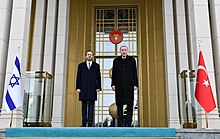
Imprisonment
Erdoan read a poem from a book by the early 20th-century pan-Turkish activist Ziya Gökalp at Siirt in December 1997. Some of the phrases he said were those that read, “The mosques are our barracks, the domes our helmets, the minarets our bayonets, and the faithful our soldiers.” that are absent from the poem’s original version. The judge viewed his recitation as being an incitement to violence and racial or religious hate under article 312/2 of the Turkish penal code. Erdoan argued that the poetry was published in state-approved publications as justification for his position. It was still unclear how this particular poem came to be included in a book issued by the Turkish Standards Institution.
Erdoan received a ten-month jail term. As a result of his conviction, he was obliged to resign as mayor. His participation in elections was prohibited by a political ban that was part of the conviction. He had filed an appeal to have the sentence lowered to a fine of $4 months (from 24 March to 27 July 1999), but that request was denied.
He was moved to Krklareli’s Pnarhisar jail. This Song Doesn’t End Here, his debut album, was released the day Erdoan was sentenced to prison. Seven poems are included on the album’s tracklist, and it was Turkey’s best-selling album in 1999, selling over a million copies. For the second time in 14 years, Erdoan went to the Pnarhisar prison in 2013. “For me, Pnarhisar is a symbol of rebirth, where we prepared the establishment of the Justice and Development Party,” he remarked after the visit.
Justice and Development Party
Erdoan belonged to political parties that judges or the military would repeatedly forbid. Traditional politicians and reform-minded politicians disagreed within his Virtue Party on the proper party speech. In contrast to its predecessors, the National Order Party, National Salvation Party, and Welfare Party, the latter party aimed to create a political force that could operate within the confines of the established order and avoid being outlawed. By including Muslim Democrats as members, they hoped to give the group the appearance of a typical conservative party, following the lead of Christian Democrats in Europe.
A clear division resulted after the 2001 ban on the Virtue Party; Necmettin Erbakan’s supporters founded the Felicity Party (SP), while reformers established the Justice and Development Party (AKP), which is now led by Abdullah Gül and Erdoan. An Islamic party, in the opinion of the pro-reform lawmakers, does not appeal to more than roughly 20% of the Turkish public and would never be recognised as the ruling party by the state machinery.
The AK party firmly established itself as a broad democratic conservative party with fresh faces from the political center (such as Ali Babacan and Mevlüt avuşolu), while honoring Islamic principles and values but without an overtly religious agenda. This worked out well because the new party received 34% of the vote in the 2002 general elections. In March 2003, Erdoan was appointed prime minister when the Gül administration lifted his political exile.
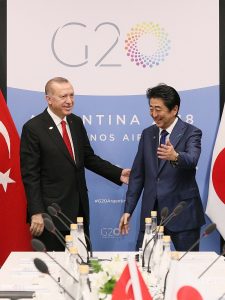
Presidency
On August 28, 2014, Erdoan took the oath of office to become Turkey’s 12th president. On August 29, he gave Ahmet Davutolu, the new prime minister, his oath. There were even people who did not like the Prophet, he purportedly said when questioned about his lower-than-expected 51.79% vote share. I, however, received 52%. When Erdoan took office, he faced criticism for declaring out loud that he would not uphold the custom of presidential impartiality. Additionally, Erdoan has declared his desire to play a more active role as president, such as using the rarely utilized power to convene cabinet meetings.
The political opposition claims that while Ahmet Davutolu, Erdoan’s new prime minister, would be passive and submissive, Erdoan would continue to pursue his own political agenda and maintain control of the government. Additionally, Davutolu’s cabinet’s dominance of devoted Erdoan followers fueled rumors that Erdoan wanted to exert significant control over the administration.
How did Erdogan get power?
Erdogan received 52.14% of the vote in the runoff election for the presidency of Turkey, according to High Election Board head Ahmet Yener, who also declared the results official. According to Yener, Erdogan’s opponent Kilicdaroglu earned 47.86% of the vote with 99.43% of the ballot boxes opened.
How many languages does Erdogan speak?
With between 80 and 90 million speakers, Turkish is the most commonly spoken of the Turkic languages. It is the national tongue of Northern Cyprus and Turkey.
How long has Recep Tayyip Erdoğan been president?
Since August 28, 2014, Recep Tayyip Erdoan has served as Turkey’s president, making him the country’s 12th president overall. On May 28, 2023, he was elected to a third term, which would end in May 2028. For a five-year term, the president is chosen directly by eligible Turkish voters.
What did Erdogan do for Turkey?
Mr. Erdogan has sought a key position as a mediator in the war in Ukraine and has maintained close ties with Vladimir Putin of Russia for a long time. Despite being the head of a Nato state, he picked Russia to build Turkey’s first nuclear reactor and purchased a Russian anti-missile defense system.
Who brought democracy to Turkey?
The revolutionary organization located in Ankara and led by Mustafa Kemal Atatürk and his associates was transformed into the government.
What is the power in Turkey?
Turkey is a pluriform multi-party system, a presidential representative democracy, and a constitutional republic in which the judiciary, parliament, and president—who serves as both the head of state and the head of government—share authority normally held by the national government.
Who is new president of Turkey?
With his victory over opposition leader Kemal Kilicdaroglu in the runoff ballot on Sunday, President Recep Tayyip Erdogan extended his authority into a third decade.
How is Turkey’s leader chosen?
The President of the Republic is chosen by the people from among Turkish nationals over 40 who are qualified to serve as deputies and have earned a higher degree. The five-year tenure of the President of the Republic is fixed.
Discover more from Labaran Yau
Subscribe to get the latest posts sent to your email.


